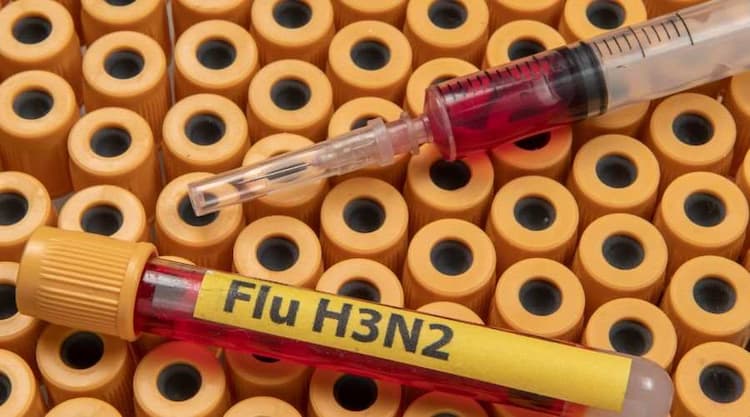High ESR Causes And Treatment - Everything You Need To Know

Medically Reviewed By
Dr Divya Rohra
Written By Meenakshi
on Sep 12, 2023
Last Edit Made By Meenakshi
on Mar 18, 2024

ESR or Erythrocyte Sedimentation Rate may be a medical mystery to many. Many might have never heard of it. Do you know why it is important, what difference it makes in your body, what causes them to rise, and how to get them in balance? Well, if not, the blog is just for you. In this blog, we'll understand ESR, the causes of high ESR, treatment, and how it offers vital insights into your health. So, let's get started.
What is ESR?
ESR, which stands for Erythrocyte Sedimentation Rate, is a non-specific marker indicating inflammation or infection in the body. When there is an inflammation in the body, it causes red blood cells to clump together & settle more rapidly, leading to an Elevated ESR. An ESR Test, also called a Sed rate test, is often used to measure ESR levels in the blood to check inflammation in the body and to diagnose conditions that cause inflammation.
What happens if your ESR levels are high?
High ESR levels are not good and indicate an underlying health condition, often related to inflammation or infection in the body. However, it is essential to understand that ESR alone cannot confirm the diagnosis but is a valuable marker that prompts further examination to establish the cause. If your test results indicate elevated ESR, it indicates:
- Underlying Condition: Elevated ESR levels indicate something is not right in your body and may need prompt attention.
- Indicate Certain Infections: Certain bacterial, viral, fungal, or parasitic infections could also be the reason for High ESR levels in the body, and a proper diagnosis is essential to determine the source of infection and guide treatment.
- Monitor Disease Progression: Monitoring ESR levels, especially for individuals with chronic illness, helps doctors track the disease's progression and treatment response over time.
Remember, High ESR itself doesn't confirm a diagnosis but is a valuable indicator used in conjunction with other clinical evaluations to determine the root cause of the problem and obtain treatment accordingly.
So, it is clear what high ESR means, but the question now is, what causes ESR levels to rise? If you want to unravel this mystery, review the points to learn more. So, keep reading.
Causes Of High ESR:
Several reasons contribute to High ESR, such as:
Infections:
Infections, whether bacterial, parasitic, fungal, or viral, can elevate ESR levels. The high levels could be because of TB, pneumonia, or urinary tract infection, and doctors may suggest additional tests to confirm the diagnosis.
Autoimmune Disease:
Apart from certain infections, rheumatoid arthritis, systemic lupus erythematosus (SLE) & other autoimmune diseases can also contribute to increased ESR.
Inflammatory Conditions:
A high ESR can also be due to various inflammatory conditions, including inflammatory bowel disease, Crohn's disease, or ulcerative colitis.
Chronic Kidney Disease:
High ESR levels could also be because of impaired kidney function or chronic kidney disease due to excess toxin buildup and inflammation.
Pregnancy:
Yes! During pregnancy, your body goes through various changes, which could be one reason for the high Erythrocyte Sedimentation Rate.
Any Injury:
Tissue injury or tissue damage could also influence inflammation response, leading to elevated Erythrocyte Sedimentation Rate.
Apart from this, certain medicines can also influence your ESR levels. Therefore, getting tested in time is critical to keep track of the levels, check fluctuations, and determine the cause of it. Your doctors may suggest an ESR Test that indirectly measures certain proteins to help diagnose inflammation-related conditions.

When Do Doctors Suggest ESR Test?
When your doctor suspects an infection or symptoms linked with High ESR Levels, they may suggest an ESR Blood Test.
Symptoms of Elevated ESR Levels:
- Anemia
- Unexplained fever & headache
- Joint or muscle pain
- Loss of appetite
- Sudden and abnormal change in body weight
The symptoms could also relate to other conditions, and getting tested in time is critical to determine the accurate cause and act accordingly.
Simply put, High ESR levels can cause concern; therefore, addressing the issue at the earliest is essential to avoid potential complications. So, what is the treatment for high ESR, and how can the levels be balanced again?

Treatment Of High ESR:
The high ESR treatment depends largely on the underlying cause, and your doctor may suggest appropriate treatment depending on your medical history, current medical status, symptoms, age, gender, and other factors. However, a general approach that may help you manage it includes the following:
Address The Underlying Condition: If your ESR is high due to an underlying condition, your healthcare practitioner may suggest appropriate medications to manage the symptoms.
What to do:
- Firstly, get tested to determine the cause of elevated ESR
- Take medicine as prescribed by your doctor
- Follow the instructions of your healthcare practitioner
- Go for routine testing (if required) to monitor fluctuations and treatment response
Lifestyle Changes: Apart from medication, your doctor may suggest some lifestyle changes to bring your ESR levels into the right balance.
What to do:
- Take a balanced diet with all the nutrients and vitamins that your body may need for balanced ESR
- Exercise regularly to manage chronic conditions that increase ESR
- Your doctor may suggest quitting smoking and being mindful of your alcohol intake to balance ESR levels
Routinely Monitor ESR Levels: A routine ESR blood test is essential to monitor any changes in ESR levels and help doctors adjust treatment as and if required.
What to do:
- Book follow-up tests or checkups as suggested by your doctor
- Don't miss any follow-up appointments
- Follow the guidance of your healthcare practitioner
In short, getting tested and consulting a healthcare practitioner is essential for accurate diagnosis and appropriate treatment, depending on your health condition.
Also read: If you are looking for some other ways to reduce your ESR levels, give it a read.
Remember, not having ESR levels in balance could influence your health and put you at risk. Therefore, measuring and monitoring them with time is essential to sidestep all potential health risks and keep your health in check.
Redcliffe Labs Is Your Destination To Be For An ESR Test
Redcliffe Labs is the name to recall if you are looking for a reliable diagnostic service provider for an ESR Test. Over the years, we have been committed to bringing quality diagnostic experience to your doorstep at the most affordable rates. You can book an Erythrocyte Sedimentation Rate Test online and get tested comfortably from home. So, delay no more and book your ESR Blood Test now.
Leave a comment
1 Comments
Shigh Daniel
Mar 18, 2024 at 8:31 AM.
What tests should I do if the esr is high?
Myhealth Team
Apr 12, 2024 at 1:02 PM.
Hi, If your ESR is high, your doctor may recommend additional tests such as a complete blood count (CBC), CRP (C-reactive protein) test, blood chemistry tests, and possibly imaging tests to further evaluate the underlying cause. Thankyou



